|
Last week, I wrote this reflection as part of a visionary care assignment for my Justice & Spiritual Care course at Iliff. The prompt was to imagine my commitments and how to bring them into alignment within my care context. I wanted to share these reflections with you, and I invite you to share your own commitments with me. Much love. - Brooklyn
I am a commitment to wholeness and integrity. I am a commitment to radical, courageous, unconditional love for all people. I am a commitment to truth-telling, liberation, and flourishing. I am loved apart from my importance. I am important because I am loved. I am exactly where God wants me. I will be fully present here until God moves me. To be a peacemaker, I will show up as an empowering cheerleader and empathetic advocate. Small is all – how we are at the small scale is how we are at the large scale. If we want the turmoil in the world to stop, we need to address the turmoil in our small circles. Our church is one of the greatest and most important spaces where we can practice the world as it should be. If we allow dysfunction and other destructive practices in our church, then we cannot expect those problems to change at the large scale. Instead, when we see people speak truth to power, we should respond with empathy and love. That same empathy and love should be extended to all people in pain, and I know there are people in pain across the whole spectrum of the issue we are entrenched in right now. To care for our community, I will lean into mutual aid, where we “work to build a new world, where people create safety through community building and support each other to stop harmful behavior through connection rather than through caging.” Instead of “caging” ourselves and each other, we need to be connecting with each other. We need to be having these complex conversations in the context of our relationships rather than putting our ideas of people into different boxes of right and wrong. Recently, a ministry coach and dear friend of mine taught me about the idea of backpacks and baskets. Her eight-year-old daughter says that God wants us to store in our backpacks things that we always need. Her friends tell her stories that they want her to put in her backpack, but her backpack cannot get too heavy. So at the end of the day, she puts it in a basket. She can carry the basket when she needs to, and she is still holding their story, but she is not carrying it in her backpack. Maybe some of the pain of our congregation needs to go in baskets, not in our backpacks. Now is the time to get abundantly clear about our values and our hopes, as this time requires “the combination of adaptation with intention, wherein the orientation and movement towards life, towards longing, is made graceful in the act of adaptation. This is the process of changing while staying in touch with our deeper purpose and longing.” I wonder what it would look like to ask our congregation: what are we committed to? I wonder if we would find ourselves in alignment. "May our wonder outmatch our wounds," prays Alexis Pauline Gumbs, Black Feminist love evangelist. I want to lead from my wonder, not my wounds. May our wonder outmatch our wounds, and may we recognize that there are deep wounds that need to be healed. - Brooklyn Works Cited
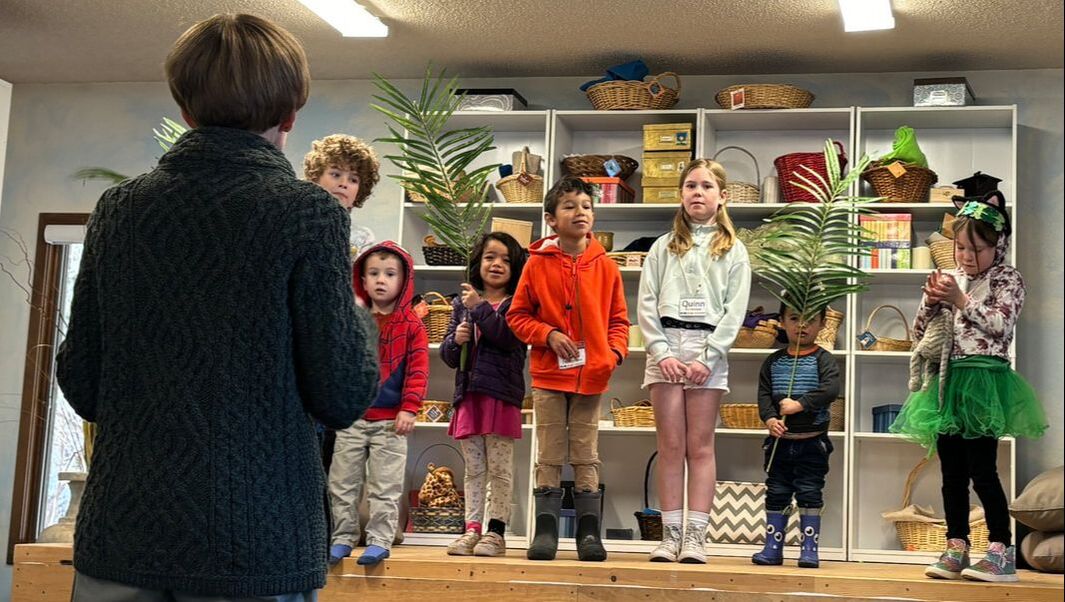 This past weekend, I got to spend time in Sunday School. We read a beautiful Easter story and then the kids practiced their parade for Palm Sunday. While we were talking about our wondering questions, one of our six-year-olds was wondering about the cross. And she said, “I think when Jesus died, God took everyone’s faithfulness and gathered it all up and Jesus came with love.” So I got to thinking about the cross – it was part of our Easter story, it was a focus in worship, and this six-year-old just gave one of the best sermons I’ve heard on it. And then I was reflecting on my own cross-generational approach to ministry. Cross-generational is a little different from our usual buzzwords like intergenerational or multi-generational. We can have different generations in the same room, which we do every Sunday, and call ourselves “intergenerational.” But are we reaching across the generations? Friends over 60, do you have friends who are 6? Or friends who are 16? Do you know their names? Research tells us that students who grow up with ten adults in church who know their name are exponentially more likely to stay in church when they become adults themselves. I also like using “cross-generational” because it throws in a little reminder of Jesus’ work - specifically the work of the cross. As we draw nearer to Easter, we have some special plans for cross-generational formation. Our Palm Sunday worship will feature moments our young friends lead us. And during the 10 o’clock hour, we will have a Stations of the Cross ritual waiting for you, so you can also reflect on Jesus’ work of the cross. Brooklyn **Cross-generational Formation: all ages are intentionally engaged in ways that are appropriate for their faith development and spiritual formation. The perspectives with the least amount of power – generally our youngest – are centered so that all perspectives are equal. Over the last several months, I have been working with the youth on an amazing, transformed venture, rooted in the deep history of compassion and love that Plymouth has displayed for decades. This weekend, all of that work is culminating in our Youth for Change weekend.
What is Youth for Change? The Youth Board, comprised of 12 students from middle school and high school, have reworked the annual Sleep Out to End Homelessness into a homelessness prevention symposium. These students agreed that the educational component of the Sleep Out was the piece they wanted to center for the whole community. So they are hosting a dinner, catered by FoCo Café, and a program featuring presenters from our community, breakout sessions for people to engage, and a silent auction. All funds will still benefit Neighbor to Neighbor. For more details, you can visit plymouthucc.org/youthforchange. This weekend, we will be joined by several different faith communities and nonprofits, and every little element has been so intentional about supporting other groups who engage the complex work of fighting housing injustice. You can see all of our partners on our website or you can meet them in person this Saturday at the event. The same group of students has planned a deeply beautiful worship service that will not only ground our community with a spiritual foundation for this area of biblical justice, but it will also offer space for our worship experience to be re-imagined by our future leaders. This whole weekend is about giving the youth a chance to envision a future that is better than what we have now. I hope our whole Plymouth community will show up in supporting the hard and impressive work these young people have done. Much love, Brooklyn For 18 years, the Sleepout has been a stalwart event in the life of Plymouth, our youth, and the Fort Collins community. In 2023, the youth have decided to reinvent this great event in hopes of broadening their reach and their impact.
We will still be partnering with Neighbor to Neighbor in hopes to benefit the homelessness prevention program, but with “Youth for Change,” the community will be invited to join us for education and spiritual practices that are intended to affect change in Fort Collins. Instead of hosting a community vigil, the youth will be organizing a fundraising event that will invite voices from our community to teach on the complexities of homelessness in Fort Collins. The youth have also moved the event from the first weekend in December to the MLK weekend in January. We are talking with N2N about how this might impact their end of year financials, and we also know this might shift some of our big donors’ ability to give. If you would prefer to give your donation before the end of 2023, you can do that! We will hold onto it and count it as part of our totals when the event happens in 2024. Our youth have been floating around some amazing ideas – silent auctions, lighting talks, local artists, breakout groups, workshops, and more. I hope you will join us for the brand new version of the 19th annual event on January 13th, 2024. And I hope you will join us for the youth-led worship and Q&A forum the following Sunday. Get Jan. 13th, 2024 on your calendar and stay tuned for details! Brooklyn 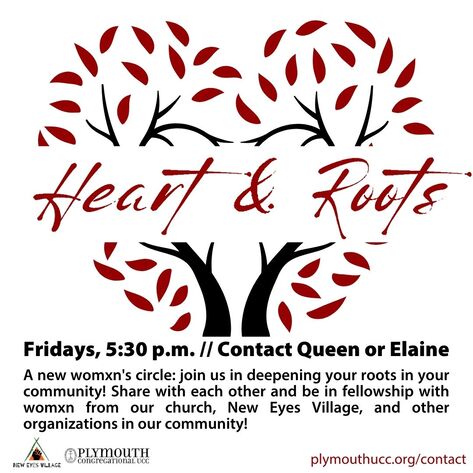 Many of you have met my friend Queen over the last few weeks. Queen founded New Eyes Village (NEV), a faith-based community focused on gathering and liberating Black folks through fellowship and formation. NEV met at Heart of the Rockies Christian Church for the last five years until HRCC started their construction projects. Now, NEV meets at Plymouth on Sunday afternoons and Friday evenings. NEV is “nesting” in our building, and we are hoping that they can feel fully at home in our space. On Sunday afternoons, Queen and some other NEV members come in to cook lunch for their worship service. Their youth often hang out in the youth room, playing games with us like Hide and Seek tag or Exploding Kittens. On Friday evenings, a small group of women gather for the Hearts & Roots womxn’s group. The Christian Formation Board chartered a ministry team that is focused on walking with NEV during this “nesting” process. Our hope is that in their first year with us, we can build and strengthen our partnership through relationships. My dream is to see NEV feel fully at home in our shared space. We would love you to volunteer your time in getting to know this community! I invite the whole church to introduce yourself to Queen and NEV whenever you see them at Plymouth, but I also invite anyone interested in joining us in this work to reach out to me or the ministry team. As we were forming the team, one of our members who works closely with FFH talked about the importance of trauma-informed care when working with marginalized populations. As a predominantly white congregation in a predominantly white town, it is our job to make ourselves safe people and to make our church a safe space. In the future, the Christian Formation board hopes to offer opportunities for our church to explore together what this can look like. Desmond Tutu wrote, “If you are neutral in situations of injustice, you have chosen the side of the oppressor. If an elephant has its foot on the tail of a mouse, and you say that you are neutral, the mouse will not appreciate your neutrality.” Silence - as you know - is violence. And I am so glad to be journeying with a congregation that refuses to be silent. I know that our congregation wants to be engaged in social justice and loving our Fort Collins community and responding to their needs. Partnering with New Eyes Village is an opportunity for us to practice extravagant welcome and radical hospitality. Much love, Brooklyn This week is my second anniversary at Plymouth! In some ways, we’re still getting to know each other. I’ve noticed that I get a handful of the same questions on Sunday mornings. So, I figured I’d write up a quick little FAQ list for you.
Q: Where are you from? I’m from here! My family moved here when I was seven years old, and I grew up in Fort Collins schools. I love it here. Q: How do you have so much energy? Well, there's a reason you almost never see me without a coffee in hand. But also, it helps that I love what I do. When the work is life-giving, you want to keep doing it. That said, the spiritual practices I lean into the most are Sabbath-keeping and rhythms of rest. I don't pour from an empty cup. Q: What were you doing before you came to Plymouth? I got a bachelor’s degree in journalism and media communications from CSU, but then I started working in full time youth ministry. I fell in love with it and started pursuing a graduate degree so I can feel like I know what I’m talking about. Q: Wait, you’re in school? Yes! This week, I officially started my last year of my grad program at Iliff. I’m getting a master of arts in pastoral and spiritual care because I get the most excited about spiritual health and the way it touches our whole selves. Spiritual formation is a huge piece of that pie, which is why I love what I do so much. I’m going to graduate on May 31, 2024. Q: Are you working towards becoming a pastor? That’s the plan - I’m officially becoming a Member in Discernment with the Rocky Mountain Conference of the UCC (the local governing chapter of our denomination). That process takes about a year, and then hopefully I will be getting ordained next fall. Cross your fingers!! Q: Can we nail your feet to the ground so you never leave? This is a real question I have been asked, and I need you to know that I don’t plan on going anywhere. Like I said, I love Fort Collins. My whole family lives here. I love Plymouth, and I am so grateful to feel that Plymouth loves me back. I love all your questions, so please never hesitate to come talk to me while I’m running around on a Sunday morning - or anytime during the week! I’m super excited to be starting my third program year with Christian Formation, and we kicked it off with a huge burst of great energy on our Jubilee Sunday. We have lots of great stuff ahead of us, and I look forward to celebrating many anniversaries with Plymouth. Much love, Brooklyn For the better part of the last week, I have been on a pilgrimage with 18 youth and 4 other adults from Plymouth and Greeley First Congregational. The idea for this trip was born out of last year’s Confirmation class and my experience in my Pilgrimage class at Iliff. Our time was equal parts experiential learning, spiritual practicing, and (not enough) sleeping. We learned from and served with different communities in search of new or different expressions of the Divine Mystery. Ultimately, our hope was to foster deeper experiences of God for all participants on the trip. Now, I want to share some highlights of what we did.
Thursday We drove down to Crestone, where we were greeted with extravagant hospitality from Rev. Melissa and the Little Shepherd in the Hills Episcopal Church. We learned that Crestone is a town of 120 people, settled in Colorado’s geographically largest but demographically poorest Saguache county. Crestone is a funky little place, with no stoplights or restaurants and dozens of spiritual or religious centers. Decades ago, Crestone donated their land to religious communities who promised to show the world a better way of neighboring, and it became the spiritual hub it is today. Half of us slept in Little Shepherd’s historic log cabin chapel, and the other half slept in their fellowship hall. They let us use their kitchen, and all 23 of us shared their single bathroom. After settling in, we went to the Tashi Gomang Stupa. There are at least seven Stupas around Crestone, but this one is the largest and highest Stupa, offering beautiful views of the San Luis valley and a reverent meditative atmosphere. We learned about how people from the nearby Zen Center hike up to the Stupa each morning for meditation. Later that night, we hiked up to the Crestone Ziggurat for some stargazing. The Ziggurat had been built in the 70s by the father of the Queen of Jordan to be a place for personal prayer and meditation. The night we were there was clear and stunning. Many of our students had never seen that many stars. Personally, I’ve only seen the Milky Way that clearly a small handful of times. Question: if we started each day with such intentional practice, how would it change the way we live our whole lives? Friday First thing in the morning, we went to visit the MahaLakshmi Temple. Again, we were embraced with radical hospitality. We learned about their daily fire ceremony, engaged in some community service - cleaning, strawberry-picking, carrying fire wood, shop-keeping - and they fed us both breakfast and lunch. The fresh strawberries at lunch were just magical. One student said they tasted like sunshine. After spending a good deal of time with the community there, I was struck by their devotion to daily worship, spiritual practice, and universal welcome. We left the Lakshmi temple and went straight to visit the volunteers at the Crestone End of Life Project. They run the only open air funeral pyre in the country. This project and these people deal with death in a way that is altogether sacred, celebrant, reverent, and joyful. At the end of my life, I just might move to Crestone so that I can be sent off by COELP. Question: how can our churches embody the same radical engagement and nuanced approach to life and death? Saturday We spent the morning packing, cleaning, and working in Little Shepherd’s community garden. Several of the church members came to teach us how to garden. We prepped buckets of produce for the community food bank. One of Melissa’s congregants donated some of their local beef, and we used that and greens from the garden to make a taco bar for lunch. We offered our thanks and our goodbyes. Then we hit the road for Santa Fe, where we enjoyed an authentic New Mexican dinner at Tomasita’s before getting to the United Church of Santa Fe. United is a UCC church that started in the 80s, and Rev. Talitha Arnold has been with them almost since their beginning. She welcomed us in with a tour of the building, teaching us about how they have intentionally created their sacred church spaces to center the natural sacred environment of Santa Fe. They have a water feature in their sanctuary, which is adorned with wood and adobe bricks and bright windows. A walking path takes you all the way around the church, where they have several different spaces dedicated to outdoor worship services. Question: how do our sacred spaces and practices connect us to our environment? Sunday We joined United for an outdoor communion service. Some of our students got to read different parts of the liturgy. Immediately following, we were invited to watch their summer choir rehearse, which was a total gift. Together, we reflected on how United is different from Plymouth and First Cong Greeley. Rev. Talitha offered a sermon that encouraged us to find God in the Body of Christ, that is, the people of God who are the Church. That afternoon, we explored Meow Wolf. One of our students was able to crack the entire story - and if you’re familiar with Meow Wolf, you know that takes some work and lots of imagination. When we got back to the church, we journaled about finding the sacred in the creative artistry of that exhibit. Question: where are the most unexpected places that you have found God? Monday The Poeh Cultural Center tells the story of the Tewa People, the Spanish and Catholic colonization of New Mexico, and the Pueblo Revolution - the first fight for freedom in North America. This story is not told in many of our history books, but it gives important context for the cultural and religious landscape that today’s America was built on. Later, when we visited the Santa Fe Plaza, we were standing on the same ground where the Pueblo Revolution was won. Their story was told through native art like paintings, clothing, pottery, clay figures, and animation. After our time with the people at the Poeh Cultural Center, we made it to the Santuario at Chimayo. The students described this place as “heavy” and “peaceful.” There are photos and crosses and candles all over the grounds, each representing thousands of prayers. The dirt is holy. And again, there was art everywhere - statues, stained glass, mosaics, paintings, and wood figures to name a few. We learned about Guadalupe and saw how Chimayo is a spiritual pilgrimage place for Vietnamese, Native, Mexican, and Western Christians. That evening, we visited the Cathedral Basilica of St. Francis of Assisi. These grounds were also fully decorated with statues, mosaics, and stunning architecture. Through the whole day, especially following some of the religious motifs I had noticed at Meow Wolf the day before, I was moved by the devotion, care, and attention given toward creating and maintaining the beauty of these spaces. Question: where do we see our Creator in what we create? Tuesday We packed up and cleaned up first thing in the morning. United is one of the most simply beautiful churches I have ever got to spend time in, and we were so grateful to have their hospitality. We loaded up and visited the Santa Fe Farmer’s Market before hitting the road. There are plenty of other things I didn’t write about here - we went to the Sand Dunes, swam in some pools, danced downtown, and ate SO much good food. We also spent time each day doing contemplative practices together. Arguably, the most important aspect of a pilgrimage is the communitas - and these students built a special community that laughed and played and screamed and cried and prayed and will be with them for a long time. Thank you, Plymouth, for making experiences like this possible. We are cultivating a beautiful future Church. Brooklyn Can you believe this is the end of my second program year with Christian Formation? This past Sunday, I had my second annual Parent Partnership meetings, where we evaluated the last year’s ministry and set goals for next year.
We got to celebrate how this school year brought so much of our life back: OWL, Confirmation, Godly Play, weekly Sunday School, youth group, La Foret, the Car Wash, the Book Sale, the coffee cart… the list could go on. And we had discussions about where we can still grow: making worship more accessible to kids, centering youth voices and youth leadership, and recreating a dedicated ministry for tweens, to name a few. If you would be interested in volunteering with Christian Formation next year, please don’t hesitate to contact me. We have lots of big dreams, and it will take many hands to make them all happen. All of that said, I am intimately aware of the fact that at this time of year, we are all so tired. We are all so ready for the summer sunshine and a slightly slower pace of life. I know this is especially true for all of us still connected to school, but I think this is true across the board. It seems life came back busier than ever. My prayer is that this summer might offer us the space to find balance again. And so, I would like to offer this brief centering prayer or meditation that I wrote for our families as we’re wrapping up this season: Take a breath in. This year has been full of good fun! Let your breath out. By the end of this month, we'll be on summer break. Take a breath in. We had a great year, Let your breath out. And we will have a restful summer. Amen. Brooklyn It’s time again for one of my absolute favorite weekends - the Spring Youth Retreat at La Foret.
This time, our theme is “We Built This City,” inspired by the Starship song and the idea of building beloved community. Logan Bennett, the Director of Transformational Programs, often tells the students that their time at La Foret is their chance to imaginatively create a space that reflects the world they want to see. Our hope is that this weekend, we will lean in to this kind of dreaming with special intention. Of course, we will spend the weekend doing the typical camp activities - scavenger hunts, crafts, games, hiking, Frisbee golf, and my personal favorite, chill time. But we also have some really strong theme-related activities planned for the weekend. First, we will give the students space for collaboration and imagination as they craft a city together. Then, we will spend time thinking about the ways we as individuals are gifted and important for contributing to our beloved communities. I rewrote a spiritual gifts workshop specifically for this weekend. Finally, students will be challenged to encourage each other by naming the ways they see each other’s gifts. In other words, they will be filling each other’s cups in beloved community so they can be sent out into being agents of wholeness in their contexts. I want the students to feel valued and inspired. We have such a unique opportunity to empower a generation of brilliant, empathetic dreamers and doers. I hope their home churches will continue partnering in this work after the weekend is over. This will be my third youth retreat with our UCC Rocky Mountain Conference camp, and we’re bringing the largest bunch of students so far! We’ll be driving down Friday afternoon and back up Sunday midday, so please pray for our travels, our health, and for our time together. We’re so excited! Brooklyn In church on Sunday, I shared about my experience with skiing for the first time. I have lived in Colorado for almost twenty years, and this past weekend I finally braved the slopes. A good friend of mine patiently taught me every step of the way, responding to my frustration with encouragement. She literally picked me up every time I fell. I thought this was a sweet picture of beloved community – I pushed myself to participate, and she met me exactly where I was.
I talked through this story with our youth group. I asked them how they imagined beloved community. One of our middle schoolers said that a ski lodge is the perfect place to experience beloved community. Up on a ski lift, complete strangers can become momentary friends. Everyone there understands the difficulty of walking downstairs with ski boots on, and everyone patiently waits. Openness, patience, and understanding were the top traits that our students picked out as necessary for beloved community. They agreed that in order to build a beloved community, you have to show up as your whole, authentic self and engage fully. Participants need to agree on a covenantal relationship of kindness and mutual respect. They said this seemed “utopian” – perhaps even impossible to achieve in the state of our world. But I believe God wants us to join in the work of making a better world. So, I asked them where they find glimpses of beloved community. Skiing. Drama club. Youth group. Boy Scouts. Their friends. Their families. Where do you find your beloved community? How are you making beloved community? How can we collectively move Plymouth towards our ideal beloved community? Look to this next generation. They get it. Brooklyn This weekend, Mike and I are taking a handful of Plymouth students to the Fall Youth Retreat at La Foret. Our theme for the weekend will be Folklore and Wisdom, where we will explore big truths within all different kinds of stories. I was tasked with developing a discussion workshop, specifically around our faith stories. The Bible contains several different kinds of stories, and I wonder how some of these may be compared to “folklore.” I wonder how some of these stories have changed over time and been misinterpreted, misunderstood, or misused. I want to look at one story in particular, Jacob Wrestles God (from Genesis 32, CEB): 22 Jacob got up during the night, took his two wives, his two women servants, and his eleven sons, and crossed the Jabbok River’s shallow water. 23 He took them and everything that belonged to him, and he helped them cross the river. 24 But Jacob stayed apart by himself, and a man wrestled with him until dawn broke. 25 When the man saw that he couldn’t defeat Jacob, he grabbed Jacob’s thigh and tore a muscle in Jacob’s thigh as he wrestled with him. 26 The man said, “Let me go because the dawn is breaking.” But Jacob said, “I won’t let you go until you bless me.” 27 He said to Jacob, “What’s your name?” and he said, “Jacob.” 28 Then he said, “Your name won’t be Jacob any longer, but Israel, because you struggled with God and with men and won.” 29 Jacob also asked and said, “Tell me your name.” But he said, “Why do you ask for my name?” and he blessed Jacob there. 30 Jacob named the place Peniel, “because I’ve seen God face-to-face, and my life has been saved.” 31 The sun rose as Jacob passed Penuel, limping because of his thigh. In Godly Play, we are encouraged to approach the stories of our faith with wondering questions. This story stirs up several wondering questions for me. I wonder if these events literally happened exactly as written here? I wonder if that matters? I wonder why it mattered that Jacob’s thigh was injured and that he limps now? I wonder what this story means? I wonder what this story means for you? What wondering questions do you have? For the last few weeks, we have been talking about what we mean when we say, “We are Plymouth.” I believe Plymouth is a place where people can wrestle with God. I believe Plymouth is a place where transformation can happen. We spent some time in youth group this weekend talking about our Plymouth community. The students agreed that our Plymouth community is deeply valuable, but they also expressed that its value is in the intangible. We may not always be able to articulate who we are or why that matters. But within loving community – like Plymouth, or La Foret – we have a great place to be working that out. Brooklyn AuthorBrooklyn McBride is Plymouth's Director of Christian Formation for Children & Youth. Brooklyn has served in local church and student ministries for the past several years. A native of northern Colorado, Brooklyn has professional experience leading in worship, youth, and children’s programs. Read her full bio here. Wow! What a wild and wonderful Jubilee Sunday. I saw so many friends I had missed all summer, and I got to meet new friends. We talked about everything coming up for this year - Godly Play, Confirmation, OWL, fundraising, and so much more! In a lot of ways, it was like the first day of school. In our time with children during the service, I talked about how the idea of jubilee felt like butterflies in my chest. There were many times I felt those butterflies as we celebrated Jubilee together. We shared our redecorated children’s classrooms for the first time. Our young kids put on an impromptu concert in the Sunday School room. We finally brought our new sixth graders into the youth group fold. And we spent some time dreaming about the future of Christian Formation at Plymouth in what feels like the most “normal” year since the pandemic. I loved listening to the different images of jubilee JT described, dreaming of what the kin-dom of God might look like here today. I wonder what jubilee feels like for you. I wonder what might inspire the world to choose jubilee - to choose rest, play, and liberation. I know the school year has started. To me, jubilee feels like the start of a new thing. And we are starting a new program year strong. Now is the perfect time to jump in to jubilee. Brooklyn AuthorBrooklyn McBride is Plymouth's Director of Christian Formation for Children & Youth. Brooklyn has served in local church and student ministries for the past several years. A native of northern Colorado, Brooklyn has professional experience leading in worship, youth, and children’s programs. Read her full bio here. The first week of July, Mike and I took eight Plymouth students – joined by ten students & leaders from Greeley First Congregational – to the Rosebud Reservation in South Dakota. We partnered with the local Episcopal Mission, working hard for three hot days to help out around the Bishop Hare Center and a church in Parmelee. There was plenty to learn from the Lakota people who graciously spent time with us. We heard the truth of the way our government continues to mistreat and neglect the indigenous people of the land we live on. Hospitals on the reservation are naval hospitals, a subtle oppressive reminder. Due to the General Crimes Act, native law enforcement often loses their jurisdiction to the FBI. We heard stories about General Custer, Sitting Bull, and Spotted Tail. A man named Nico played traditional drum songs, teaching us about native music and prayer. The students learned to make fry bread from Rich Brokenleg. And it was delicious. We spent the first couple days cleaning up around our home base, the Bishop Hare Center. A house on the property had some pipes burst, so we moved out several years’ worth of furniture and belongings left behind by the intentional community that lived there. We did some yard work, reorganized a tool shed, and sorted old scrap wood. On the last day, we cleaned up the Church of the Holy Innocents in Parmelee after it had been broken into. A grocery store owner came by with a box full of popsicles to thank the students for their work. The trip was full of hard work and good learning, but we also had tons of fun. We played some typical youth group games, pet lots of rez dogs, got some ice cream, played kickball, and spent time getting to connect with each other. More than anything, I love to see our students building relationships with each other and with students from other progressive churches. So, while the week was exhausting, I was totally in my element. On a personal level, I was struck by two things. First, the Rosebud Episcopal Mission needs our help. I am excited to go again, and I am grateful for this partnership. Second, God is experienced across cultures and across history. God transcends all our human-made boundaries. As a seminary student, this is an idea I have encountered in my studies before. But on the reservation, with the Lakota people, I got to see it for myself. I will be carrying all of this with me for a long time, and I am so grateful that our Plymouth community gave us this opportunity. ] Brooklyn AuthorBrooklyn is Plymouth's Director of Christian Formation for Children & Youth. Brooklyn has served in local church and student ministries for the past several years. A native of northern Colorado, Brooklyn has professional experience leading in worship, youth, and children’s programs. Read her full bio here. Since I started at Plymouth, I have been connecting with other progressive youth ministers in Northern Colorado. We had a couple other churches join us at last year’s Sleepout. Just a couple weeks ago, we hosted a youth lock-in for our church, First Presbyterian Church, and Greeley First Congregational. We are building a unique network for our students and dreaming with each other about ministering to young people in our community. Victoria Burkett, the Youth & Young Adult Director at First United Methodist, is hoping to build a stronger ecumenical effort and draw in college students & young professionals across the front range through their campus ministry, Kindred. Kindred's mission is for college-aged and young adults to grow in their lives and faith through meaningful experiences in a uniquely inclusive environment. During the year, this looks like weekly discussion groups, monthly worship nights, campus outreach, and fellowship events. The Kindred board finds itself in an era of rebuilding as they come out of the pandemic, and they are inviting more people to join them in their mission. Another one of my youth minister colleagues, Carlie Hoskins of First Presbyterian Church, recently joined their board. I think the heart of Kindred aligns beautifully with Plymouth's strategic plan and our vision for campus ministry. This upcoming generation faces a daunting mental health crisis, and in the midst of it, they are searching for meaning and belonging. I love young people. I deeply believe that spiritual communities are key to their flourishing. I am so excited to be at a church that wants to support the next generation. I am also excited about the ecumenical spirit of the progressive churches in Fort Collins that I have encountered. As we continue to explore these connections and ministry in the next phase of the world, I am officially Plymouth's presence on the Kindred board. If you might be interested in learning more about Kindred, please do not hesitate to reach out to me. The way forward will see us better together. Kindred is modeling that as they model this John Wesley quote: “Do all the good you can, by all the means you can, in all the ways you can, in all the places you can, at all the times you can, to all the people you can, as long as ever you can.” - Brooklyn AuthorBrooklyn is Plymouth's Director of Christian Formation for Children & Youth. Brooklyn has served in local church and student ministries for the past several years. A native of northern Colorado, Brooklyn has professional experience leading in worship, youth, and children’s programs. Read her full bio here. 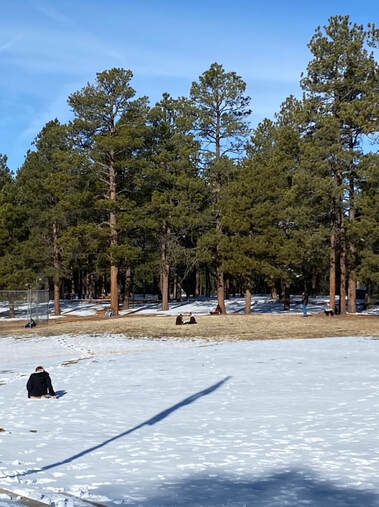 The theme of this year’s Spring Youth Retreat was “Stories.” While retreating in the gorgeous Black Forest, we spent our time focused on learning what it means to co-create our own stories with God, mostly by learning from each other. I had a great time building new and old relationships with other leaders and students across the UCC Rocky Mountain Conference. But on the first night, the camp staff reminded the adult leaders that the weekend was all about the campers first. So with that spirit in mind, I interviewed one of our students for this week’s reflection. I hope you enjoy this perspective as much as I did. Q: What do you want the church to know about the retreat? A: The retreat was so fun and super inclusive. The community and environment was so accepting, and it just felt like one big family. I made new connections right away! I honestly would love to go back. Q: What did you learn? A: The stories shared really gave a different perspective as well. it helped me learn that everyone comes from a different background, but they grow and change. Q: At Plymouth, we call some spiritual or Divine experiences “God sightings.” Did you have any “God sightings” this weekend? A: There was a moment in the chapel when stories were being shared where I genuinely felt the Divine’s/God’s presence. It was very powerful. It was almost like God was being shown through the stories, which made me feel like He was watching and giving people the courage to share their story. Q: Traditionally at La Foret, the older students lead all the younger students in a processional towards the chapel for worship. It’s a deeply reverent walk around the whole campground. Students were carrying flashlights and singing old hymns. What was it like for you to help lead the processional? A: It felt like one big family/community just genuinely connecting with God as well as each other. God’s presence was shown through the songs and connections. It’s hard to explain, but in a way it felt like everyone was at peace, and everyone was thankful to be able to connect with God through each other. Q: What is one big idea you’re taking away from the retreat? A: It is really easy to assume someone’s background story just by looking at them. And even though this is a very human thing to do, that doesn’t make it right. Everyone comes from a different background, but in the end we can always find support through each other and God. Community is very important. If you find one that’s accepting and inclusive, it’s the easiest to find God through it because it opens your eyes and makes you feel like you can have these connections without feeling judged. Instead of assuming, ask questions. It’s important to ask questions within someone’s comfort zone because it can help you really understand them better without assuming where they come from. Brooklyn AuthorBrooklyn is Plymouth's Director of Christian Formation for Children & Youth. Brooklyn has served in local church and student ministries for the past several years. A native of northern Colorado, Brooklyn has professional experience leading in worship, youth, and children’s programs. Read her full bio here. |
Details
|

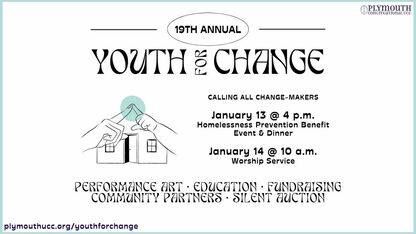
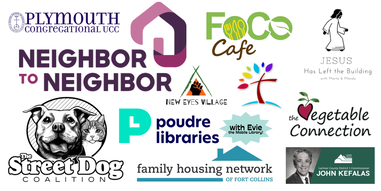
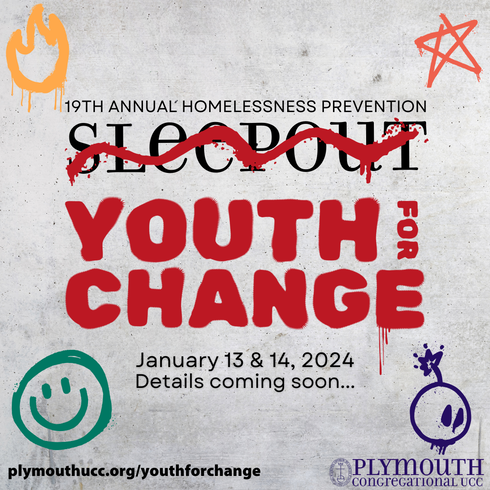
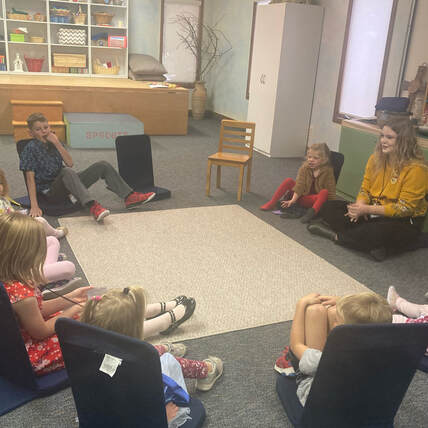
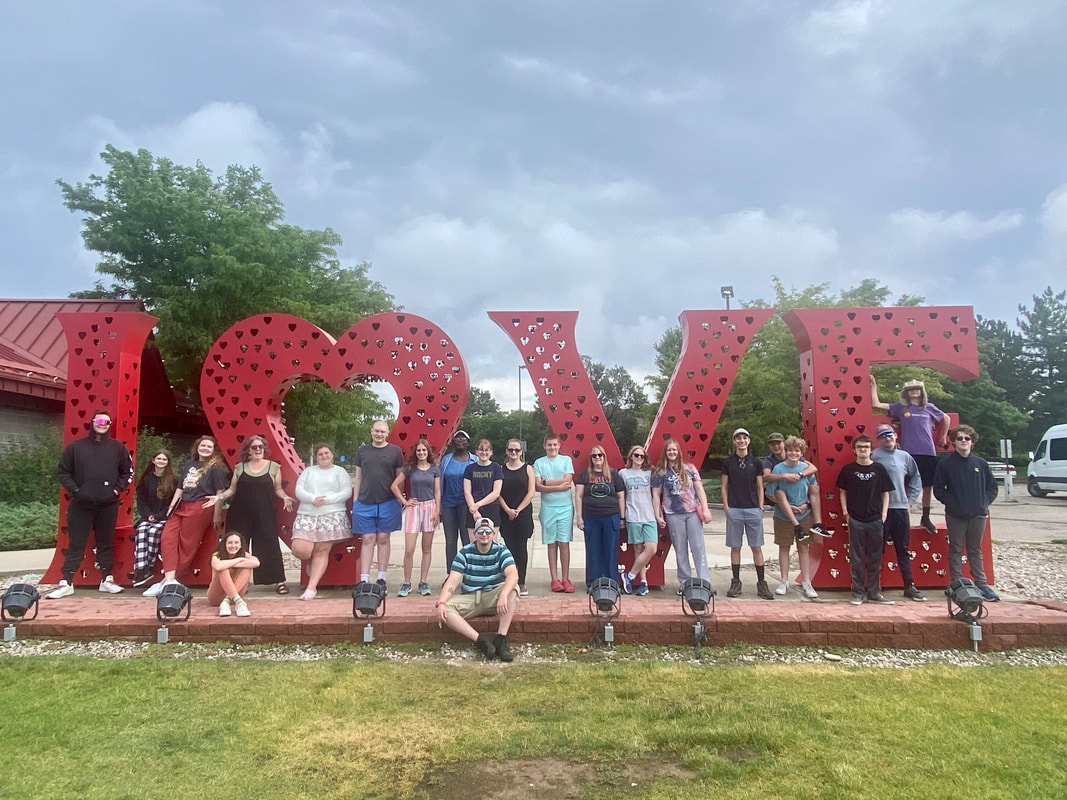
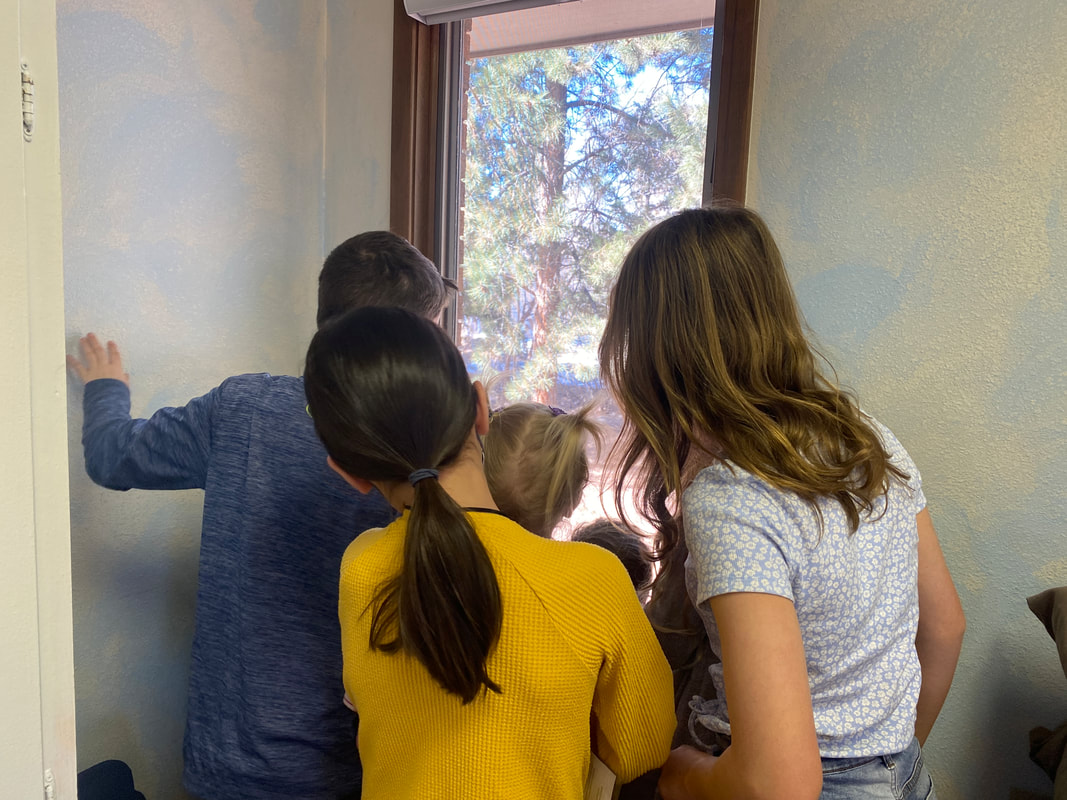
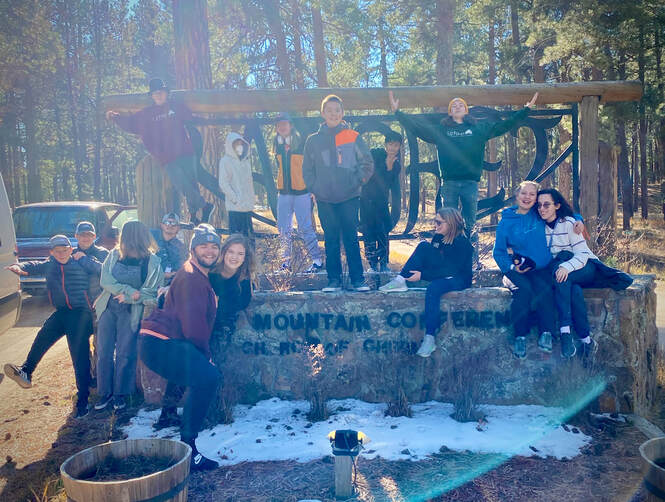
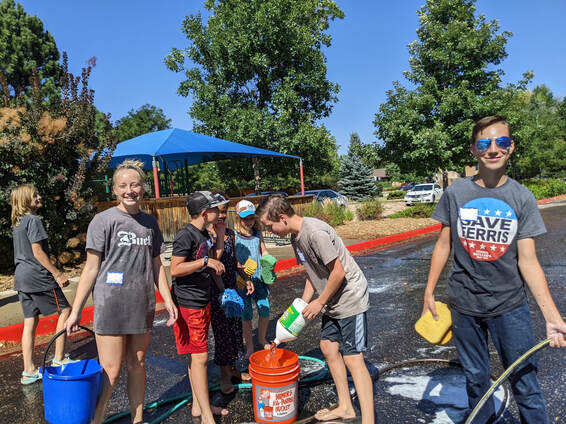
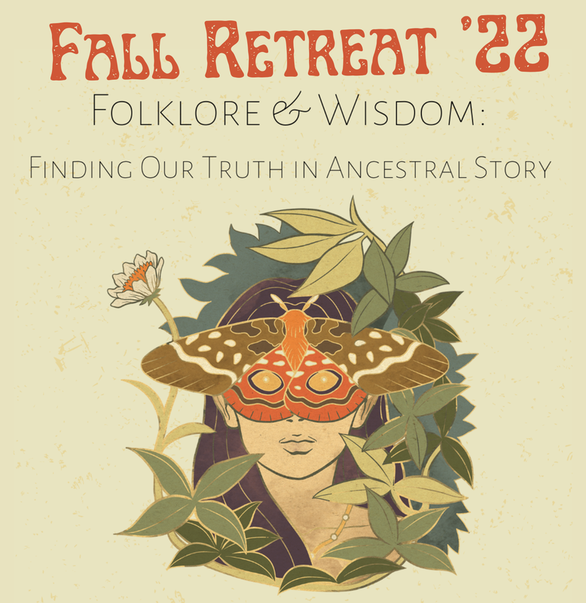
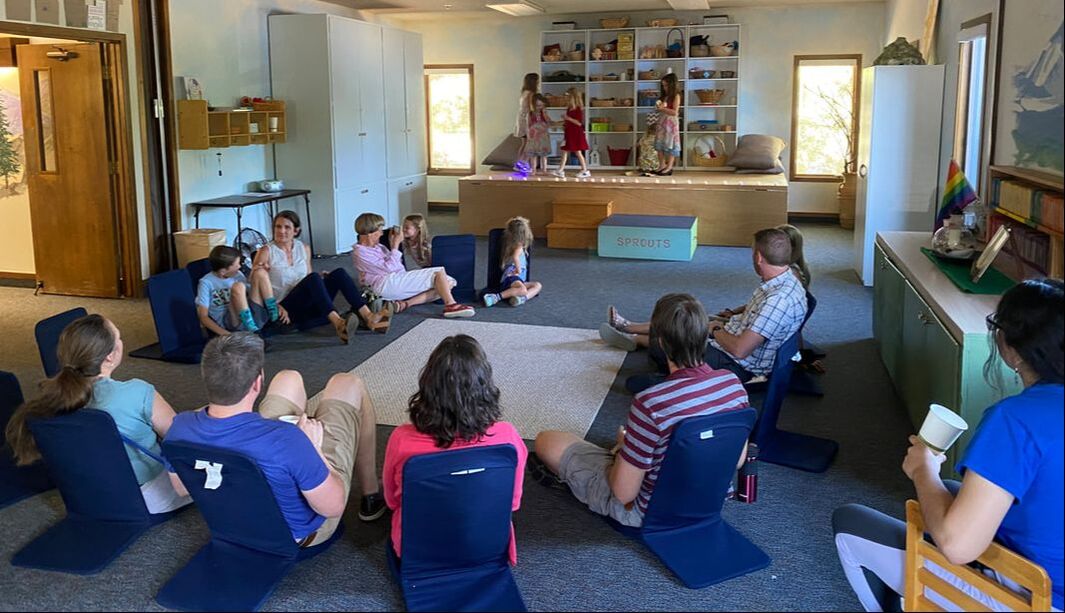
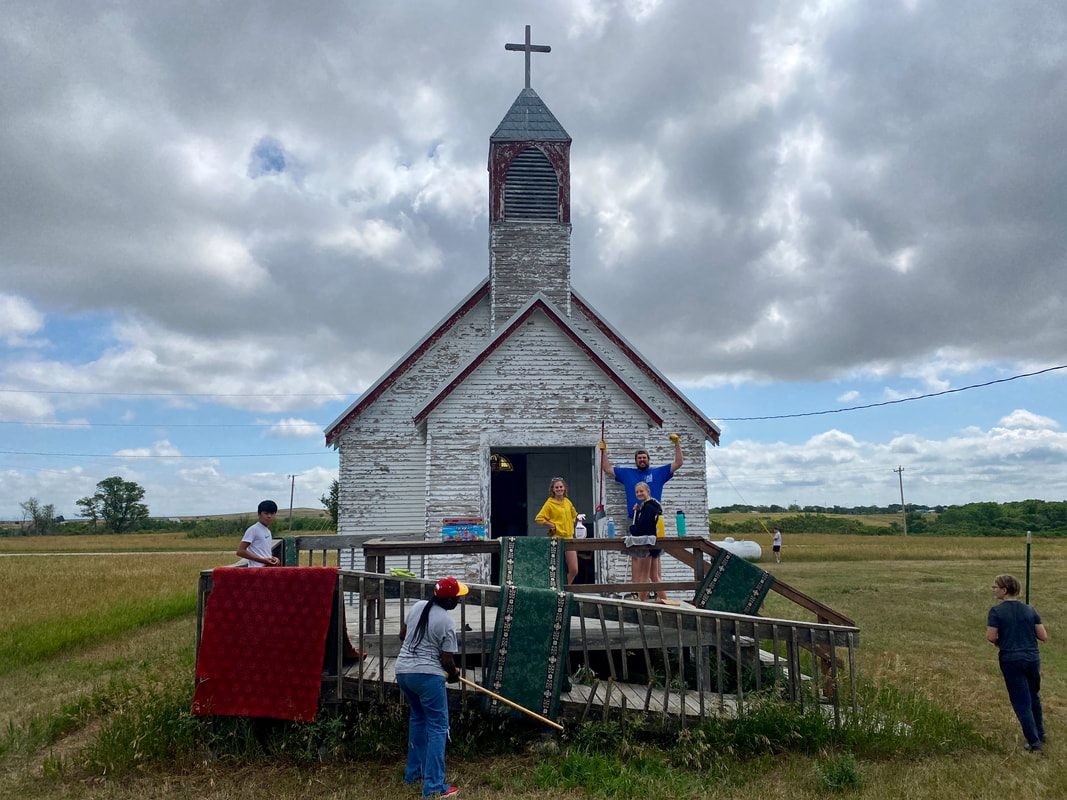
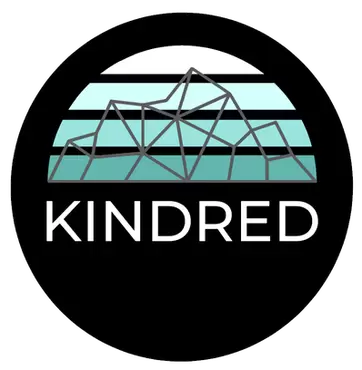
 RSS Feed
RSS Feed